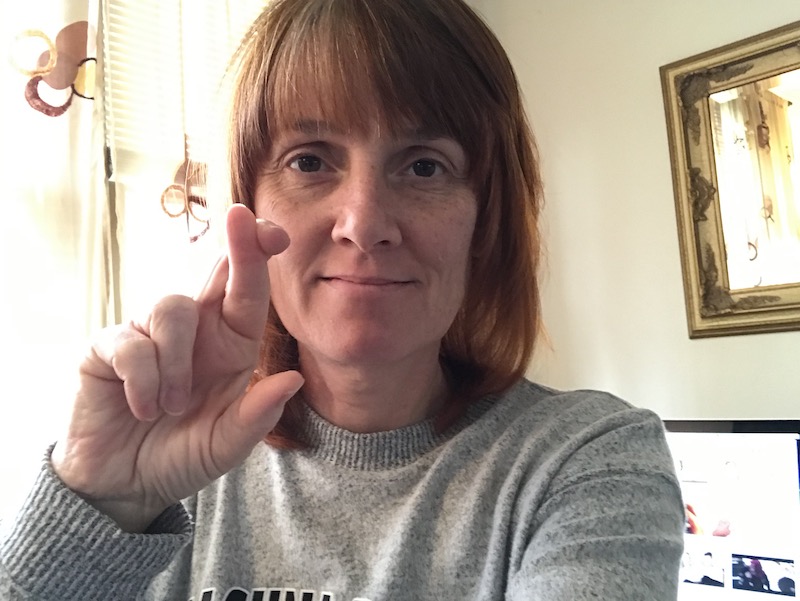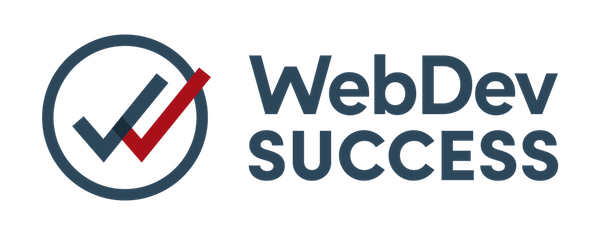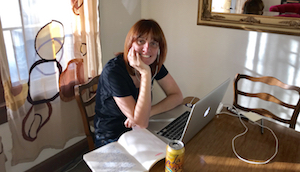
I returned to my office this week to find a resume waiting on my desk.
It’s one of the best resumes I’ve ever reviewed. It makes me wonder, “Why does this person want to work for me?” and, “Why isn’t this person working for themselves?”
In fact, this person does cite experience as a Freelance Website Developer. Why did they quit doing that? Do they have two heads?
So, of course I immediately email this person to let them know I will definitely be contacting them when I have an opening.
Because, you know, I want to meet the person with two heads.
Whenever I interview a person with an impressive resume, I try to get to the bottom of things.
I come just short of asking, “What’s wrong with you?” and “What are you really up to here?”
Our conversation is not so much about their technical qualifications. They’re obviously qualified for the job. The part-time, no benefits, yet totally awesome job.
What I really want to know is what they aren’t saying in their resume and cover letter.
“Help me understand why you are interested in a part-time, no benefits, yet totally awesome job? What is going on in your life right now that makes this a good, long-term commitment for you?”
That’s when the good stuff comes rolling out.
Sometimes I find out that they really don’t want this job. It comes as a revelation to both of us; as if no one, including themselves, has ever asked them this question.
The candidates who answer “I really want this job” have to come around to telling me what happened with the Freelance Website Developer gig.
At this point, none of them have ever come right out and said,
“I suck at sales.”
Instead, they say,
“I couldn’t get very far with it.”
“I couldn’t make enough money.”
“It just never took off.”
“The work wasn’t steady enough.”
These responses remind me:
I could have been the person on the other side of this interview.
Throughout my 10 years as a Website Developer, I have had moments when I have looked very closely at those attractive LinkedIn job openings in my inbox.
Some of them seem to be a perfect fit for my skill set.
Or, at least the salary and benefits would be a nice fit.
And, then I remember, while slurping the drool in from the corner of my mouth, that I love working for myself.
Plus, I’m a terrible employee.
The steady, full-time job is most attractive to me when sales are down; when I’m afraid my hard work might not pay off.
I indulge my fears for a little while. Then, I stop browsing the job openings and renew my commitment to sales.
My willingness to sell has saved my ass and saved my company.
Note: I didn’t say, my ability to sell. I haven’t always known how to sell. It didn’t come naturally.
I learned how to sell.
Don’t worry. I’m not going to teach you how to sell. Sales experts are plentiful. (See my recommended reading list below.)
More important to my business survival has been the willingness to sell.
Willingness to sell means one thing: Showing up to class.
The act of selling is essentially raising my hand and saying, “Pick me! Let me help you with that problem.” I can’t raise my hand if I don’t go to class.
Earlier in my career, “class” was my networking group. I had to show up and talk to people. I had to listen to and present to the individuals in my networking group.
One-on-one and group meetings with my fellow networkers allowed me a safe place to learn what worked and didn’t work in my selling efforts. Simply by showing up, I was faced with opportunities to hone my skills and sometimes make sales.
I eventually graduated from that classroom.
Today, showing up to class means actively supporting my salesperson and her success. We sit down together regularly to review her leads. We brainstorm. I ask questions and make suggestions. I make time for this even when it’s tempting to bail because sales is her job.
Showing up to class means not quitting when sales are down. The key to my perseverance lies in my strong belief that my success is inevitable.
But, even after I developed my sales skills, I’ve retreated. It’s at those times that I’m vulnerable and before I know it, I’m browsing craigslist to see if there is anything I might like better.
Then I imagine myself sitting on the other side of the interview table.
That image keeps me showing up to class and practicing sales. Showing up to class has nothing to do with my winning personality or my five star technical skills.
The person with the personality and technical skills is sitting across from me in a job interview.
They don’t have two heads. They just quit showing up to class.
Comment or ask a question below.
These books have transformed my business:
The Little Red Book of Selling by Jeffrey Gitomer
Exactly What To Say by Phil M. Jones
Scientific Advertising by Claude Hopkins
Pre-Suasion by Robert Cialdini









We started our small business in 2000, the ‘selling’ defaulted to me because of my 2 business partners, 1 was a prima dona and was conveniently ‘too busy,’ (she is no longer with us), and the other, my husband, wasn’t a great interpersonal communicator. So he became my back-up and eventually he learned to take on his own prospects and, help me with those that I didn’t have a super comfort level with. Anyways, I really had no idea on how to sell other than learning from friends that did this for a living. In the last 20 years, I’ve learned a lot. Like for instance, the no bull-shit speak works best for me. Meaning things such as calling my clients my ‘friends’ on social media, or plastering nonsense all over social media about drinking and or partying or socializing with my clients is just, well phony and weird. I don’t need to strike our clients or our own egos. They are not our friends. They are our clients. Although I do genuinely like our clients, our job is to make our client’s jobs seamless, profitable, and trouble-free. And that is what we do. Eventually, by forming these relationships in the beginning process with people we actually like, and showing that we can make their job easier, we don’t have to sell much at this point of our career because we end up with referrals from the clients that trust us with their challenges. It doesn’t always work out this way but it does enough that for the most part, I have stopped ‘selling.’
I love this story of how you learned to sell. It’s not a perfect process. But, you’ve built a great business without the phony baloney. And it took the time investment, too.